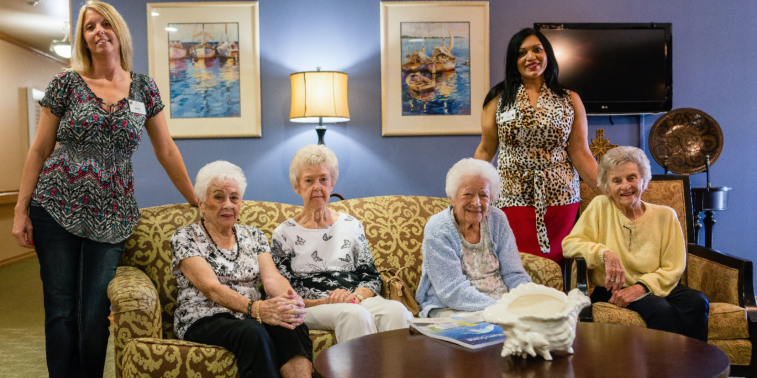Efficient Mental Deterioration Care Strategies for a Better Quality of Life
In the realm of mental deterioration treatment, the execution of effective methods is important for improving the lifestyle for both individuals impacted by the disease and their caretakers. Understanding the distinct stages of dementia enables tailored interventions that deal with the developing demands of patients-- from promoting cognitive involvement in the onset to ensuring self-respect in late-stage treatment. The relevance of interaction methods and a helpful environment can not be overstated. What particular techniques can be adopted to cultivate an ambience of empathy and connection throughout this tough trip?
Understanding Dementia Stages

In the early stage, individuals might experience mild memory loss and problem with acquainted tasks. Treatment strategies must concentrate on maintaining freedom and offering cognitive excitement. In the late stage, people may lose the capacity to need and communicate aid with day-to-day activities.
Recognizing these phases enables caretakers to adapt their strategies and provide assistance that straightens with the person's current requirements, eventually helping with much better monitoring of the problem and boosting the total caregiving experience. Comprehending mental deterioration stages is for that reason a fundamental element of efficient dementia treatment.
Interaction Strategies
Effective interaction is an important component of mental deterioration treatment, especially as the illness advances via its various stages. As cognitive capabilities decrease, it comes to be important to adjust interaction methods to fulfill the demands of individuals with dementia. Utilizing clear, easy language is essential; caregivers need to stay clear of complicated sentences and lingo, opting instead for simple, concise expressions.
Non-verbal communication plays an equally considerable duty. Face expressions, gestures, and tone of voice can communicate warmth and understanding, often enhancing spoken messages. Preserving eye get in touch with and an open stance cultivates a feeling of link and security, motivating people with mental deterioration to engage even more completely in conversations.
It is likewise useful to be person and permit enough time for responses. People may need added time to procedure information and formulate their thoughts. Repeating or putting in other words questions may be necessary if comprehension appears doing not have.
Finally, concentrating on the individual's rate of interests and personal background can assist in much more significant communications. Participating in familiar topics can stimulate favorable memories and emotions, further enriching the communication experience (dementia care charlotte). By using these techniques, caregivers can substantially improve the high quality of interactions, promoting self-respect and respect for individuals coping with dementia
Creating a Safe Atmosphere
Producing a risk-free environment for individuals with mental deterioration is necessary to advertising their well-being and freedom. A well-designed room can considerably decrease the threats of crashes and boost the high quality of life for those impacted by this condition.
Lights plays a critical function as well; using all-natural light wherever feasible and incorporating night lights can aid individuals browse their surroundings safely. Furthermore, classifying rooms and crucial things can help memory and orientation, decreasing confusion and stress and anxiety.
It is also essential to produce a familiar setting by click now customizing the space with pictures or cherished products, which can evoke favorable memories and a sense of belonging.
Including furniture that is both useful and comfortable contributes to a supportive atmosphere, permitting individuals to involve in everyday tasks with ease. Ultimately, a risk-free environment not just safeguards against physical dangers yet also fosters a sense of safety, which is necessary for the emotional well-being of those coping with mental deterioration.
Engaging Tasks and Routines
Engaging tasks and structured routines are important components in the care of individuals with dementia, as they promote cognitive function, psychological stability, and social communication. These activities need to be customized to the person's passions, capabilities, and phase of cognitive decline. memory care facilities charlotte. Simple, recurring tasks such as horticulture, crafts and arts, or food preparation can supply meaningful involvement, enabling people to utilize their skills while promoting a feeling of achievement
Developing an everyday regimen helps create a foreseeable atmosphere, which can minimize stress and anxiety and complication. This framework can include assigned times for dishes, tasks, and rest, ensuring a balanced approach to every day life. Incorporating social communications right into these routines, such as team activities or going to family members, additional improves emotional well-being and deals with sensations of isolation.
Furthermore, physical tasks, such as walking or dancing, not only advertise physical wellness however also boost mental engagement. Motivating involvement in area events or support system can provide additional chances for socializing. Overall, the combination of structured routines and appealing activities is essential in enhancing the lifestyle for people with mental deterioration, fostering self-reliance and self-respect while resolving their unique needs.
Supporting Caretaker Health
Looking after individuals with mental deterioration can be a demanding and mentally straining experience, making it critical to focus on the well-being of caretakers. Caretakers typically encounter high degrees of stress and anxiety, anxiousness, and physical exhaustion, which can cause exhaustion if not resolved properly. To sustain their health, it is important to carry out a complex method.
First, providing caregivers with Home Page accessibility to education and sources can equip them with techniques to take care of everyday challenges. Assistance teams, both in-person and online, offer a system for sharing experiences, fostering a sense of area, and decreasing feelings of seclusion. Additionally, reprieve care solutions allow caretakers to take required breaks, permitting them time to go to and reenergize to their own wellness needs.
Additionally, urging caretakers to participate in self-care techniques-- such as routine exercise, healthy eating, and mindfulness-- can substantially boost their durability. Promoting Recommended Reading open interaction about their feelings and difficulties with household participants or professionals likewise assists relieve emotional concerns.
Verdict
Finally, reliable dementia care techniques encompass a detailed understanding of the disease's phases, the implementation of clear communication methods, the facility of a risk-free setting, and the promo of organized routines and interesting tasks. Additionally, focusing on the wellness of caregivers is necessary to sustaining quality care. By incorporating these strategies, the overall lifestyle for people with mental deterioration can be significantly improved, promoting a supportive ambience that advertises dignity and emotional health.
In the world of dementia care, the implementation of reliable methods is vital for enhancing the top quality of life for both people impacted by the illness and their caregivers. By employing these strategies, caregivers can considerably boost the high quality of communications, advertising self-respect and regard for people living with dementia.

Caring for individuals with dementia can be a requiring and mentally straining experience, making it imperative to prioritize the well-being of caregivers.